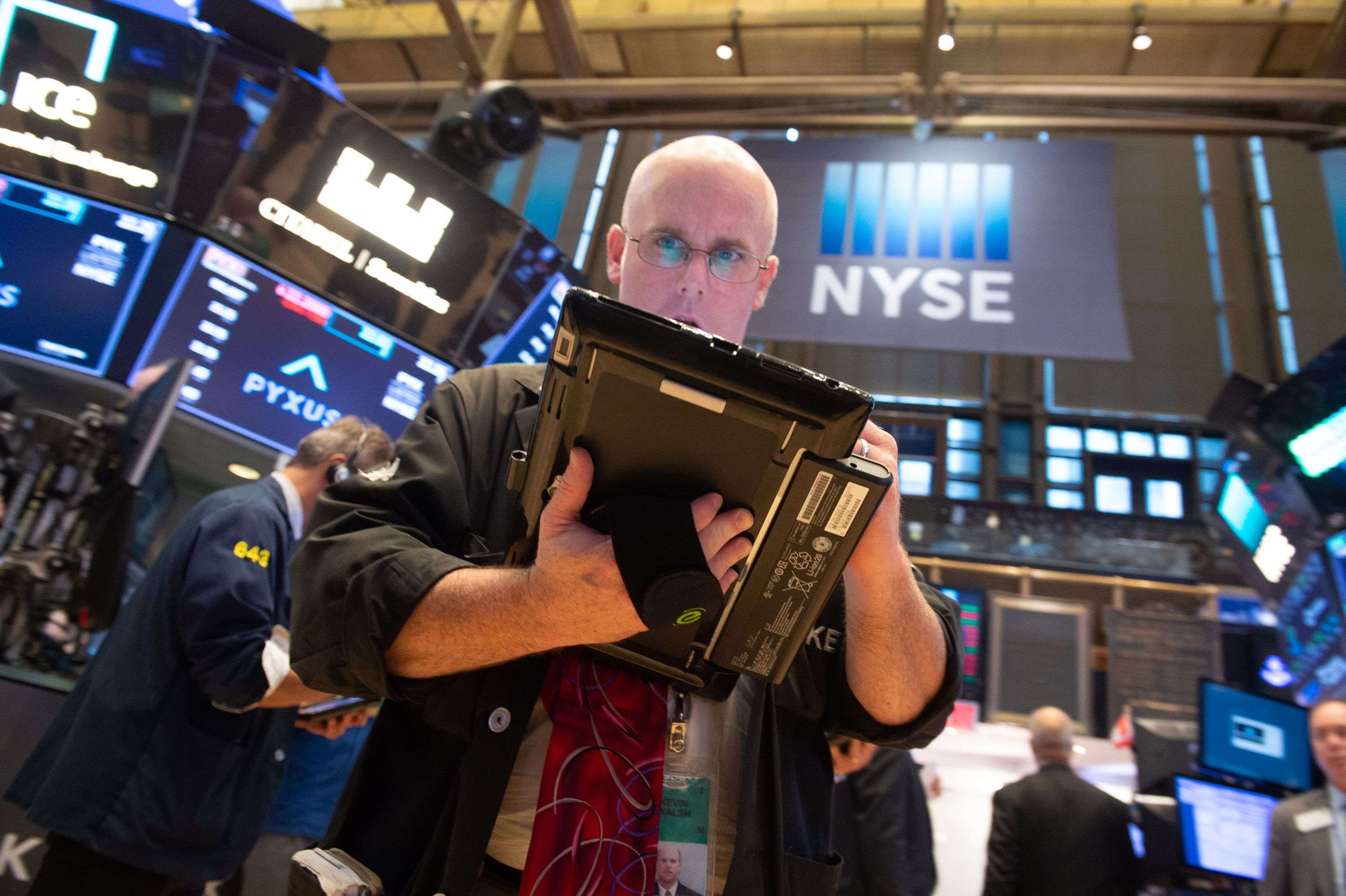INSUBCONTINENT EXCLUSIVE:
United States
stocks tumbled
again Thursday, knocking 600 points off the Dow Jones Industrial Average and putting the benchmark SP 500 on
track for its worst week since March.
The broad market decline came
as the
arrest of a senior Chinese technology executive overshadowed
some positive comments on trade from Beijing and threatened to worsen trade
tensions between the United States and
China.
The lingering
trade dispute has deepened investors' worries that the prospects for global economic and corporate earnings growth could be dimming.
Traders
continued to shovel money into bonds, a signal that they see weakness in the economy ahead
The yield on the 10-year Treasury note fell to 2.85 percent from 2.92 percent on Tuesday, a large move.
United States stock and bond
trading were closed Wednesday because of a national day of mourning for President George H.W
Bush.
``The market seems right now to be focused on increased risks for a 2020 recession,'' said Patrick Schaffer, Global Investment
``It's a very hard market to buy when you see really strong signals that we are indeed late (in the economic) cycle.''
Oil prices fell
sharply
as traders appeared to doubt that an expected production cut by OPEC will be enough to boost the price of crude.
Technology
companies, banks and health care
stocks took some of the heaviest losses in the latest wave of selling
Oracle slid 4.3 percent to $46.64
Citigroup fell 4.8 percent to $59.25
Centene sank 7.3 percent to $131.80.
The SP 500 index slid 61 points, or 2.3 percent, to 2,638
as of 11:47 a.m
The Dow dropped 626 points, or 2.5 percent, to 24,400
The average briefly slumped
as much
as 784 points
The technology-heavy Nasdaq composite lost 119 points, or 1.7 percent, to 7,039.
The Russell 2000 index of small-company
stocks gave up 35
points, or 2.4 percent, to 1,445.
The latest losses put the SP 500 and the Dow back into the red for the year
The Nasdaq was still slightly higher for 2018.
Major indexes overseas also fell sharply
The DAX in Germany dropped 3.9 percent, while France's CAC 40 lost 3.7 percent
The FTSE 100 in Britain declined 3.6 percent.
Canadian authorities arrested the chief financial officer of
China's
Huawei Technologies
on Wednesday for possible extradition to the United States
Meng is a prominent member of Chinese society
as deputy chairman of the board
and the daughter of company founder Ren Zhengfei
China has demanded Meng's immediate release.
The
arrest came days after President Donald Trump met with Chinese President Xi Jinping to
discuss the two nation's escalating trade dispute.
Markets rallied on Monday on news that Trump and Xi had agreed at the summit over the
weekend to a temporary, 90-day stand-down in the two nations' escalating trade dispute
That optimism quickly faded
as skepticism grew that Beijing will yield to United States demands anytime soon, leading to a steep sell-off
in global markets on Tuesday.
``Trade
tensions aren't going away,'' Schaffer said.
The renewed jitters over the implications that Meng's
arrest could have on United States -
China trade negotiations weighed on big exporters Thursday
Boeing slumped 6.3 percent to $320.96.
The news also resulted in another down day for markets in Asia.
Hong Kong's Hang Seng index tumbled
2.5 percent and Japan's benchmark Nikkei 225 fell 1.9 percent
Australia's SP/ASX 200 lost 0.2 percent, while South Korea's Kospi sank 1.6 percent
Shares also fell in Taiwan and all other regional markets.
OPEC countries gathered in Vienna Thursday to find a way to support the falling
Analysts predicted the cartel and some key allies, like Russia, would agree to cut production by at least 1 million barrels per day
OPEC heavyweight Saudi Arabia indicated it was in favor of such a cut.
The expectation did not keep the price of oil from falling, however,
as investors focused on the potential economic disruption from any escalation in the United States -
China trade dispute.
Benchmark United
States crude sank 4.5 percent to $50.53 a barrel in New York
Brent crude, used to price international oils, slid 4.4 percent to $58.88 per barrel.
The dollar weakened to 112.47 yen from 113.19 yen late
The euro rose to $1.1362 from $1.1342.

